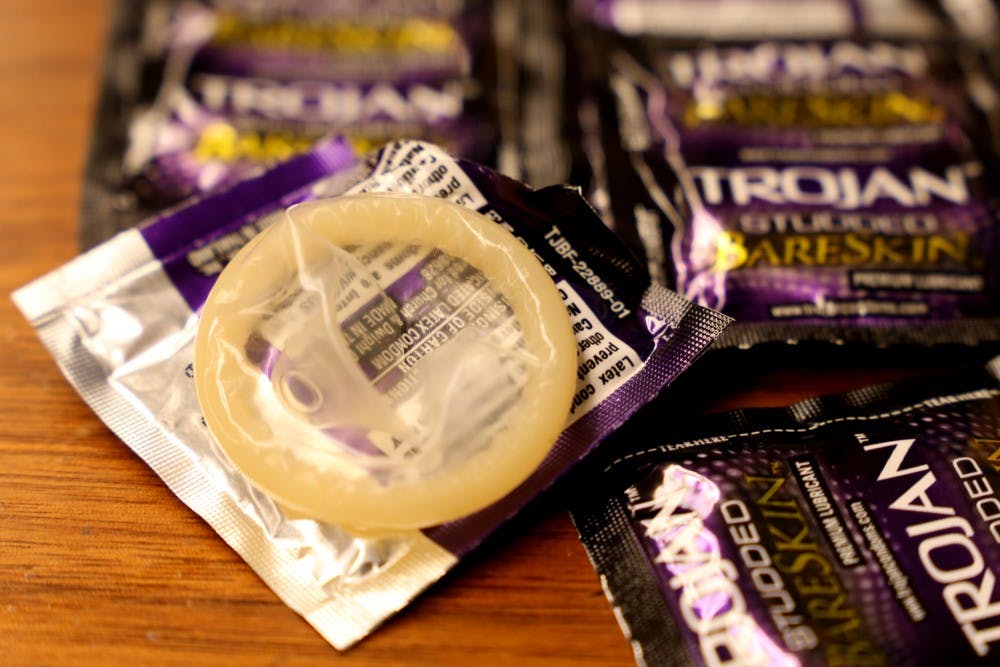Undergraduate Student Government Tempe announced the cancellation of Project Condom on Feb. 27 during its weekly senate meeting. This announcement comes in response to negative feedback that led to the cancellation of another sexual health-themed event in February.
The previous event, originally called "Go F<3CK Yourself" and changed to "Go Love Yourself" before being canceled, was a masturbation seminar that received overwhelming negative feedback from right-wing media outlets.
Read more: After pressures from right-wing media, USGT cancels masturbation-positive event
In a Facebook event description of Project Condom, USG billed the event as a "fashion show extravaganza that will educate students on sexual health through performance."
The event was scheduled to take place on March 15 and was included in ASU's HERstory month celebrations.
Project Condom is a campaign by the condom supplier ONE, which supplies condom and prizes to colleges who want to host their own Project Condom fashion show. Artists and designers create works of fashion made out of condoms that are then modeled by students to promote sexual health.
The cancellation was announced by Lester Nnagbo, vice president of services and criminal justice senior.
"As of right now, we chose to disclose the fact that Project Condom was being cancelled at senate tonight because we had this conversation with our directors meeting on Monday, and it felt it was very not appropriate to keep half of our USGT in the closet about an event that we were cancelling," Nnagbo said.
USGT issued a press release detailing how the group fears that Project Condom could face the same negative feedback as the previous event, and that it wanted to protect those participating from being harassed.
The press release, which was sent to The State Press on March 12, states, “With the nature of this event including students putting forth their creative work, we recognize that this may make them vulnerable to the same negative attention that was so critical of our organization.”
Colleges and universities around the country have held similar events with no issues, including UCLA and the University of Maryland.
University of Maryland aluma Allihies Melton covered Maryland’s 2016 Condom Fashion Show for University of Maryland student arts publication The Writer's Bloc.
Melton said the liberal community on campus was generally supportive of the multiple sex-health themed events that happen annually, and that individuals who didn't support the event "tended to stay away."
While the events never drew large crowds, Melton said the fashion show was enjoyable and, most importantly, informative.
“The people who came and didn’t know anything about these organizations on campus or sexual health initiatives left really informed about what kind of resources were available to them,” Melton said.
When contacted for further comment about the cancellation, USGT deferred to the press release. However, USGT holds that it will continue to support the importance of sexual health and wellness within the ASU community.
"Our efforts will blossom into a campaign that will provide our community the resources and support they deserve," USGT said in the press release.
Nikki Truscelli, a second year doctoral candidate in the ASU Hugh Downs School of Human Communication, developed and co-instructed a discovery seminar class titled “Sex and Communication in College" with professor Paul Mongeau.
The course covers a wide range of topics including casual sexual relationships, non-monogamous relationships, pornography, body image and consent issues.
Truscelli said they were supported by both the University and community, and never had any problems with the title or topics covered in the course.
“We never experienced any pushback, but I think a lot of that was that we made sure it was a very safe space,” Truscelli said.
She said the cancellations of these USGT events corresponds the current social climate surrounding sex education.
“I think it all comes down to the fact that, as much as we hate to admit it, sex is still taboo in society and the college campus,” Truscelli said.
While difficult, Truscelli said that dialogue about sex in college is crucial.
“We need to feel comfortable talking about these things because they are so intricately related to our health and well-being, so much so that not having the conversations is hurting us,” Truscelli said.
She said the cancellation of these sex positive events “is not a a good pattern to set."
Reach the reporters at goldham@asu.edu and follow @graceoldham123 on Twitter and at Edith.Noriega@asu.edu or follow @Noriega_Edith on Twitter.
Like The State Press on Facebook and follow @statepress on Twitter.




